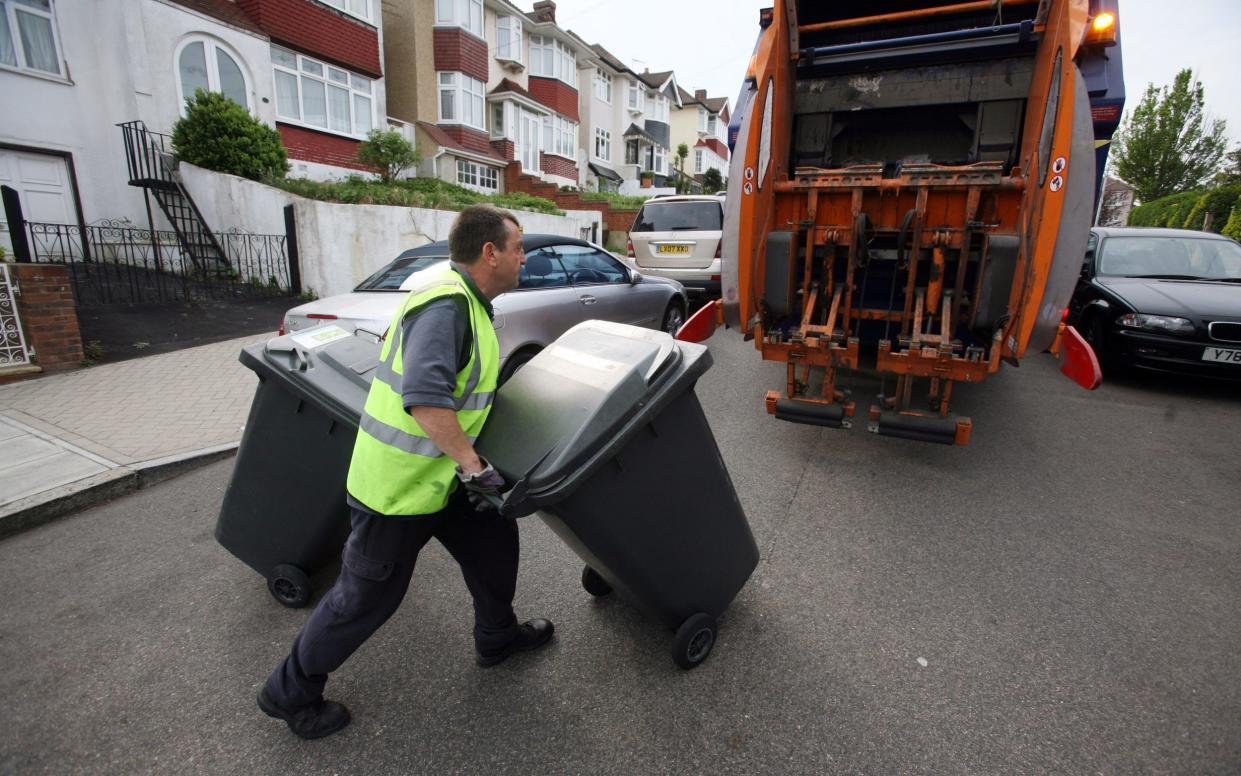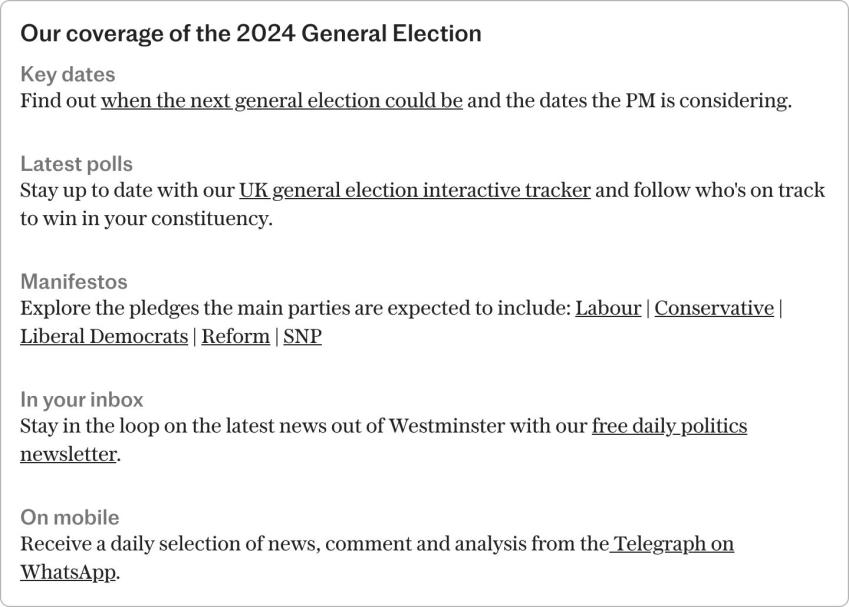Labour plan to put middle-class people ‘at back of queue for access to services’

Labour plans to force public bodies to put middle-class people at the back of the queue for taxpayer-funded services including policing, schools and refuse collection, its opponents claim.
Sir Keir Starmer’s manifesto pledges to resurrect a law that critics say would “level down” public services by allocating money on the basis of socio-economic status, rather than need.
The Conservatives argue that Labour’s plan would amount to “enforced class discrimination” and result in council taxes being ramped up disproportionately in wealthier areas.
They claim that people from deprived backgrounds could leapfrog higher earners on school waiting lists, meaning that places would be prioritised on the basis of a person’s background, rather than other factors such as siblings being at the same school.
Police resources, such as responding to burglaries, could also be skewed in favour of poorer areas, and bin collections could likewise be allocated on the basis that deprived areas go to the front of the queue.
The profound changes signposted in the manifesto are contained in a single sentence that has attracted little attention. It says that Labour “will enact the socio-economic duty in the Equality Act 2010”.
The Equality Act 2010, passed in the dying days of the Gordon Brown government, included a clause that required public bodies to “have due regard to the desirability of exercising [their functions] in a way that is designed to reduce the inequalities of outcome which result from socio-economic disadvantage”.
It was described by Labour ministers at the time as “socialism in one clause” because it stressed the need for equality of outcome, rather than equality of opportunity.
Theresa May dubbed it “Harman’s law” because it was the brainchild of the then equalities minister Harriet Harman, who had said it would lead to “a new social order”.
As home secretary, Mrs May said the clause would be abandoned, describing it as “ridiculous”, and explaining that: “I do not believe in a world where everybody gets the same out of life, regardless of what they put in.
“That is why no government should try to ensure equal outcomes for everyone.”
However, the law remains on the statute books, meaning that Labour would not need to pass primary legislation to bring it into force.
Repercussions across public sector
Local authorities receive 52 per cent of their revenue from council tax, 22 per cent from central government grants, and 26 per cent from business rates.
Simon Hoare, the local government minister, said: “Activating the socio-economic duty will have repercussions for every public sector organisation, especially local authorities.
“Grants given to councils would be reallocated to favoured areas represented by members of the Labour frontbench with cuts for suburbia and rural areas.
“The only way to maintain current levels of bin collections, pothole repairs and much more in those areas would be increased council tax. Labour have repeatedly refused to rule out a costly revaluation and scrapping the protections of referendums on excessive increases in council tax. Now it’s obvious why.”
Tony Travers, professor of the school of public policy at the London School of Economics, said the clause would mean money being diverted from better-off areas to less affluent ones.
He said poorer areas could be given more funding from central government and wealthier areas less central funding, which would push up council tax in wealthier areas to make up for the shortfall.
He said: “There is no extra money for public services, or if there is it is marginal.
“If Labour wins the election, attempting to redistribute resources to reflect the demands of the Equality Act would almost inevitably mean taking resources from one area and moving it to another because the cupboard is bare.
“When it comes to services like policing, which have come under enormous pressure since 2010, that is where there would have to be a redistribution of resources.
“You could redistribute local government funding from central government away from more affluent local authority areas, and individual councils could also spend a greater share of their money on poorer areas within their area.
“You could also remove the current cap on increasing council tax, which would mean well-off areas would have to pay higher tax to make up for a shortfall in central government grants that were going to poorer areas where council tax rises might be lower.”
Anneliese Dodds, the Labour Party chairman and shadow equalities secretary, said: “This is desperate nonsense – there will be no reductions to local services.
“It is the Conservatives’ mismanagement of the economy that has decimated services across the country. Labour will help everyone across the country get on by stopping the chaos, turning the page, and rebuilding Britain.”


 Yahoo News
Yahoo News 
